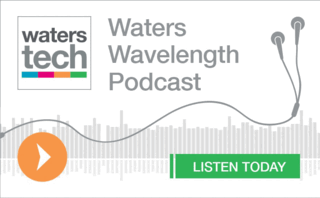
LSEG-Tora: A tale of crypto, Asia expansion and (more) integration burdens
When LSEG acquired Refinitiv, it added Eikon, FXall, and AlphaDesk to its portfolio of execution platforms. In February, the exchange also bought Tora, which has a stronghold in Asia, as well as a presence in crypto. While sources say there are clearly synergies, the key piece of the deal will come down to integration and interoperability.
In the world of financial technology, size matters. Proof of that can be seen in the order and execution management system space, where the likes of SS&C Technologies, Ion Group, Broadridge and even State Street have been growing rapidly through acquisition. One of the more unique entrants into this M&A blitz, though, has been London Stock Exchange Group.
Last week, LSEG announced, subject to regulatory approvals, it was acquiring buy-side OEMS and portfolio management system technology provider Tora for $325 million—a “hefty” price tag for a vendor that is mainly focused on Asia, some sources say. The appeal for the exchange operator is clear, though: LSEG doesn’t currently have an OEMS that has a strong presence in the growth market of Asia. Tora also helps LSEG expand its fixed income, foreign exchange (FX), derivatives, and, perhaps most importantly, its cryptocurrencies coverage, since the exchange doesn’t currently have any products that enable for the execution of digital assets.
As the exchange digests this new acquisition, sources say the greatest concern for users will likely be around tech integration and support. In the summer of 2019, LSEG announced it would acquire Refinitiv in a deal valued at an eye-watering $27 billion. At the time of the announcement, WatersTechnology wrote an article titled “LSEG’s Proposed Refinitiv Deal: It’s About More Than Just Market Data”. And the deal was certainly about much more than market data. Yes, Refinitiv was the second-largest market data provider (and a powerhouse in the alternative data and reference spaces), but its portfolio also included a raft of execution tools, such as the Eikon trading terminal, the Redi EMS, the FXall trading platform, and the buy-side OMS AlphaDesk. (See “Growth through acquisition” box below.)
Clients don’t want three products for three geographies. Just because you have Tora and Redi, that doesn’t mean that your clients can magically trade globally.
former Refinitiv executive
Soon after the Refinitiv deal closed at the start of 2021, LSEG announced that the integration of the tech and data giant would take longer than originally expected. Now, the exchange operator is adding further complexity to the integration project by adding yet another trading platform.
“Geographical expansion makes sense, but how do you offer a product? Clients don’t want three products for three geographies. Just because you have Tora and Redi, that doesn’t mean that your clients can magically trade globally,” says a former Refinitiv senior executive.
Tied to that integration challenge is the issue of support. Last year, Eikon suffered three major outages, as well as a series of smaller disruptions, which the exchange said were “unacceptable”.
“You can’t have that with a trading product,” the former executive says. “So one of the biggest concerns should be support. If you put all the support and technology functions in the centralized departmental corporate structure, a product can wither away—a trading product needs real-time support.”
The source adds that at the time of their departure a few years ago, FXall was a standalone product, and Eikon and Redi were still working towards full integration. (The AlphaDesk deal closed in June 2019 and is still being integrated.)
A former LSEG executive who was still at the exchange when the Refinitiv deal closed says there were indeed internal conversations over the cost of the Refinitiv integration.
“Look, as powerful as Refinitiv and the platform is, it still needs to be modernized, and I think that’s part of what they’re dealing with—a tech stack that’s not completely modernized yet, but onto which they are trying to integrate more acquisitions,” they say.
Modern family
So, Tora becomes an additional integration burden for LSEG at a time when the exchange already has a spate of projects underway to slot the massive Refinitiv piece of the puzzle into place. For example, even before the LSEG deal closed, Refinitiv decided to subsume Eikon (and its Thomson One workstation) into a new data and collaboration platform called Workspace.
Workspace is built using the Electron open-source software framework (not to be confused with Refinitiv’s own Elektron low-latency infrastructure), which makes it easier to build JavaScript and HTML applications, make changes, speed up production cycles, and respond to client requests, without the “inherent rigidity” of older technologies.
Workspace also contains a cloud-based, integrated Python scripting environment, dubbed CodeBook, which enables users to build Jupyter notebooks using Refinitiv data. Separately, an integration with Microsoft Office allows clients to incorporate data via the vendor’s API into models built in Microsoft Excel, and other Microsoft Office applications. And key to the platform, Workspace has an API-driven back end that enables clients to make use of its data in other applications, depending on a firm’s needs.
One of the reasons they moved onto Workspace is they needed to be a lot more open; they needed to be on a lighter, more modern technology, and so they’re doing all the right things, but it’s still happening and in the works, so that definitely makes the Tora integration a little more challenging.
former LSEG executive
On top of this Workspace project, the exchange also made the decision to re-platform FXall to the LSEG Millennium tech stack. The company said at the time that the migration will boost order processing and quoting speeds and enable the support of a broader range of order types.
“Refinitiv’s always had a pretty old tech stack,” says the former LSEG executive. “One of the reasons they moved onto Workspace is they needed to be a lot more open; they needed to be on a lighter, more modern technology, and so they’re doing all the right things, but it’s still happening and in the works, so that definitely makes the Tora integration a little more challenging.”
The crypto connection
As noted previously, the price tag for Tora surprised some observers. The former LSEG exec believes that Tora’s crypto capabilities played a big part in the $325 million valuation. “The multiple that the deal commanded is just crazy. To pay $325 million on that—I think the crypto side definitely commanded a premium, and I think that’s one of the reasons they were interested”
The former Refinitiv exec echoes that sentiment, saying they believe that this deal was about “buying revenue, and they’re not buying it cheap—they’re buying at nearly a 10x revenue multiple.”
And a senior executive at a competing OMS provider says that even though a lot of time and money has been put into getting these systems to work together, even prior to the LSEG deal, in the end, they expect the exchange to consolidate the AlphaDesk, Redi and Tora pieces, where Workspace will eventually become the focal point from which users access global, cross-asset trading.
“It’s a lot of money they spent on buying these products, and then they actually have to make money from it afterwards. Unless this is, I suggest, a way to entrench their position to be able to sell more data and other bits and bobs. Then they’ll have to maintain all three products, right? AlphaDesk, Redi and Tora—and that comes with a cost. So if we look at something like this, we will look to consolidate because it’s really difficult to afford having multiple products that basically do the same thing. You can, of course, say that maybe the Asian market is different, and so on, but actually for this piece, I would argue that the market is largely global,” the rival OMS exec says.
However, integration challenges are not unique to LSEG. There’s tremendous pressure for firms to scale up through acquisition, otherwise they risk getting squeezed in the middle, fighting over breadcrumbs. At the same time, buy-side firms are having to expand into new asset classes and geographies to generate alpha, as passive investing and tech innovation create unique challenges.
A key theme we are seeing from customers is the demand for multi-asset coverage. When we talk about multi-asset, that ‘multi’ piece is getting a bit wider—it’s not just your classic asset classes.
Dean Berry, LSEG
“The natural guess is that desktop terminals are going to be less important. Yet, if you look at it, what we’re seeing is different forms of distribution,” says Brad Bailey, head of market intelligence at broker-dealer Clear Street.
“There are still people that need desktops, but I think the overall business as you think about the future of where we’re going—and this is fixed income, equities, crypto … whatever the trading product or data—the more you have unique distribution channels, whether it’s to a desktop or an API, it doesn’t matter as much as having the breadth of data,” Bailey says.
Tora, which was founded in 2004, has made its mark in Asia, an area where the various other LSEG products are lacking. Conversely, Redi has far greater penetration in the US and European markets, where Tora has limited relationships. So from a geographic perspective, pairing Tora and Redi makes sense, Dean Berry, group head of trading and banking solutions at LSEG, tells WatersTechnology.
Tora will also allow LSEG to expand its multi-asset class coverage, specifically in fixed income, FX, and derivatives, and, as noted previously, cryptocurrencies. Tora has a digital asset trading platform called Caspian, a sister company that connects to over 30 different crypto exchanges and aims to provide institutional-grade tools for trading in the nascent—but rapidly-growing—asset class.
While Berry says the crypto piece wasn’t the main driver of the acquisition, he notes that a “big asset manager” asked during a recent request-for-proposal process, “What can you do in the crypto EMS space?” Other buy-side firms, though not directly involved in an RFP, have also asked LSEG about its crypto capabilities, he says.
“A key theme we are seeing from customers is the demand for multi-asset coverage. When we talk about multi-asset, that ‘multi’ piece is getting a bit wider—it’s not just your classic asset classes.”
Furthermore, Berry hopes that Tora’s crypto capabilities will help it to expand its offering at tier-1 banks in the US.
“Global banks have been very vocal about providing digital asset trading to their clients,” he says. “As such, they will need a trusted partner to be able to execute on crypto, and we want to be that trusted partner To be clear, we are acting as the infrastructure to facilitate the trading, akin to a motorway network. These banks could go directly to the crypto exchanges and build connectivity directly, but that can be timely, expensive, and difficult to maintain—so many are choosing to connect via an infrastructure provider.”
‘Unknown unknowns’
Berry’s career spans three decades. He joined Refinitiv from BGC Partners in November 2020. He says that when he arrived, he began thinking about acquiring Tora. While he declines to give an exact timeframe on when official discussions began with Tora, he says they kicked into force about six months ago.
Berry acknowledges that trading platform integrations are challenges, but says that when it comes to LSEG’s integration of Refinitiv, the process has been ongoing for more than a year, and the thinking around that integration had been ongoing for a while before that, as it took some time for the deal to clear regulatory hurdles.
You feel more confident when you’re working with a more modern tech stack. If you’re working with a newer company, the technology tends to be much more agile.
Dean Berry
Berry anticipates the Tora integration going smoothly because it is built on a more modern architecture—though, Tora, itself, was not born on, say, the cloud, and is itself undergoing a major tech modernization process.
“They’ve embarked on their journey to the cloud,” Berry says. “So some of their stack is already in the cloud, as is ours, so that is really important for us to be able to work with.”
He also notes that Tora has “embarked” on an HTML5 overhaul, “moving away from legacy Java-type applications,” which is important from a compatibility perspective because the new Workspace platform is built on HTML5. This will also be important if, as expected, hybrid in-office, work-from-home work structures become the norm in a post-pandemic world.
“You feel more confident when you’re working with a more modern tech stack,” Berry says. “If you’re working with a newer company, the technology tends to be much more agile.”
The long slow road
Refinitiv’s predecessor Reuters, started developing electronic trading platforms in the 1970s, and Tora itself is nearly two decades old. But it must also be stated again that in today’s consolidating market, firms need to scale up and diversify asset and geographical coverage.
If LSEG is successful at stitching these pieces together, the exchange operator will become a powerful force in the world of market data and trading technology. If it’s disjointed and not connected—not interoperable—client frustration will lead to the exchange learning new lessons when it comes to trading-platform user feedback.
Given Tora’s price tag, if the former prediction comes to pass, then it will have been an expensive but necessary move. If the latter, those lessons could prove very costly indeed.
Growth through acquisition
Acquisitions involving Thomson Reuters/Refinitiv that are pertinent to the Tora acquisition:
July 2012: Thomson Reuters bought FXall (then FX Alliance) for $625 million. The deal closed in August 2012.
September 2016: Thomson Reuters acquires Redi Global Technologies for an undisclosed amount. The deal closed in January 2017.
January 2018: Thomson Reuters agreed to sell its Financial & Risk unit to a new company minority-owned by the vendor and majority owned by a consortium led by Blackstone Group. The deal was for $20 billion and closed in October 2018. The new company was named Refinitiv.
May 2019: Refinitiv acquired AlphaDesk for an undisclosed amount. The deal closed in June 2019.
July 2019: London Stock Exchange Group bought Refinitiv for $27 billion. The deal closed in January 2021.
Further reading
Only users who have a paid subscription or are part of a corporate subscription are able to print or copy content.
To access these options, along with all other subscription benefits, please contact info@waterstechnology.com or view our subscription options here: http://subscriptions.waterstechnology.com/subscribe
You are currently unable to print this content. Please contact info@waterstechnology.com to find out more.
You are currently unable to copy this content. Please contact info@waterstechnology.com to find out more.
Copyright Infopro Digital Limited. All rights reserved.
You may share this content using our article tools. Printing this content is for the sole use of the Authorised User (named subscriber), as outlined in our terms and conditions - https://www.infopro-insight.com/terms-conditions/insight-subscriptions/
If you would like to purchase additional rights please email info@waterstechnology.com
Copyright Infopro Digital Limited. All rights reserved.
You may share this content using our article tools. Copying this content is for the sole use of the Authorised User (named subscriber), as outlined in our terms and conditions - https://www.infopro-insight.com/terms-conditions/insight-subscriptions/
If you would like to purchase additional rights please email info@waterstechnology.com
More on Data Management
The IMD Wrap: Talkin’ ’bout my generation
As a Gen-Xer, Max tells GenAI to get off his lawn—after it's mowed it, watered it and trimmed the shrubs so he can sit back and enjoy it.
Waters Wavelength Podcast: The issue with corporate actions
Yogita Mehta from SIX joins to discuss the biggest challenges firms face when dealing with corporate actions.
Data catalog competition heats up as spending cools
Data catalogs represent a big step toward a shopping experience in the style of Amazon.com or iTunes for market data management and procurement. Here, we take a look at the key players in this space, old and new.
This Week: JP Morgan, Broadridge, Lloyds, JSE, Schroders, and more
A summary of the latest financial technology news.
What firms should know ahead of the DSB’s UPI launch
Six jurisdictions have set deadlines for firms to implement the derivatives identifier, with more expected to follow.
Has cloud cracked the multicast ‘holy grail’ for exchanges?
An examination of how exchanges—already migrating to the cloud—are working to solve the problem of multicasting in a new environment.
Waters Wrap: Market data spend and nice-to-have vs. need-to-have decisions
Cost is not the top factor driving the decision to switch data providers. Anthony looks at what’s behind the evolution of spending priorities.
The consolidated tapes are taking shape—but what shape exactly?
With political appetite established on both sides of the Channel, attention is turning to the technical details.







